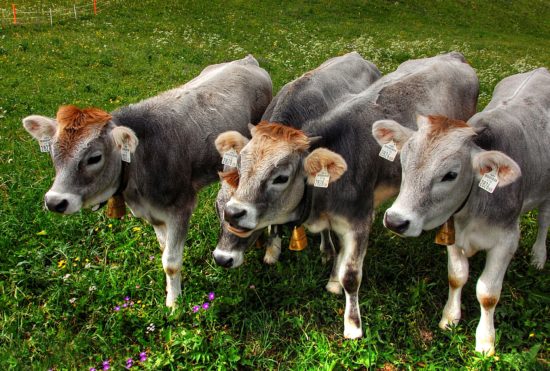Dynamic Changes in Antimicrobial Resistance in Fecal Escherichia coli from Neonatal Dairy Calves: An Individual Follow-Up Study
Antimicrobial resistance in food animals is a global public health concern. In dairy farms, young calves typically carry high levels of antimicrobial-resistant (AMR) Escherichia coli, and may act as a potential reservoir. Fecal E. coli were isolated and tested for susceptibilities to eight common antimicrobials from 19 newborn dairy calves using individual follow-up at daily and weekly intervals. Shedding of AMR E. coli first appeared at 2–3 days after birth. The majority of fecal E. coli from neonatal calves (≤28 days old) were resistant to streptomycin, sulfisoxazole, and tetracycline. A tetracyclines-associated resistance gene (tetB) was predominant in the fecal E. coli from neonatal calves, and was also detected in maternal colostrum samples from the mothers of the tested calves. These results suggest the potential of antimicrobial resistance genes being shared between neonatal
calves and their mothers’ colostrum. Neonatal calves with a history of treatment with ceftiofur also shed AMR E. coli resistant against beta-lactams. Moreover, these results provide new insights for controlling the spread of antimicrobial resistance on dairy farms
AMR NEWS
Your Biweekly Source for Global AMR Insights!
Stay informed with the essential newsletter that brings together all the latest One Health news on antimicrobial resistance. Delivered straight to your inbox every two weeks, AMR NEWS provides a curated selection of international insights, key publications, and the latest updates in the fight against AMR.
Don’t miss out on staying ahead in the global AMR movement—subscribe now!







